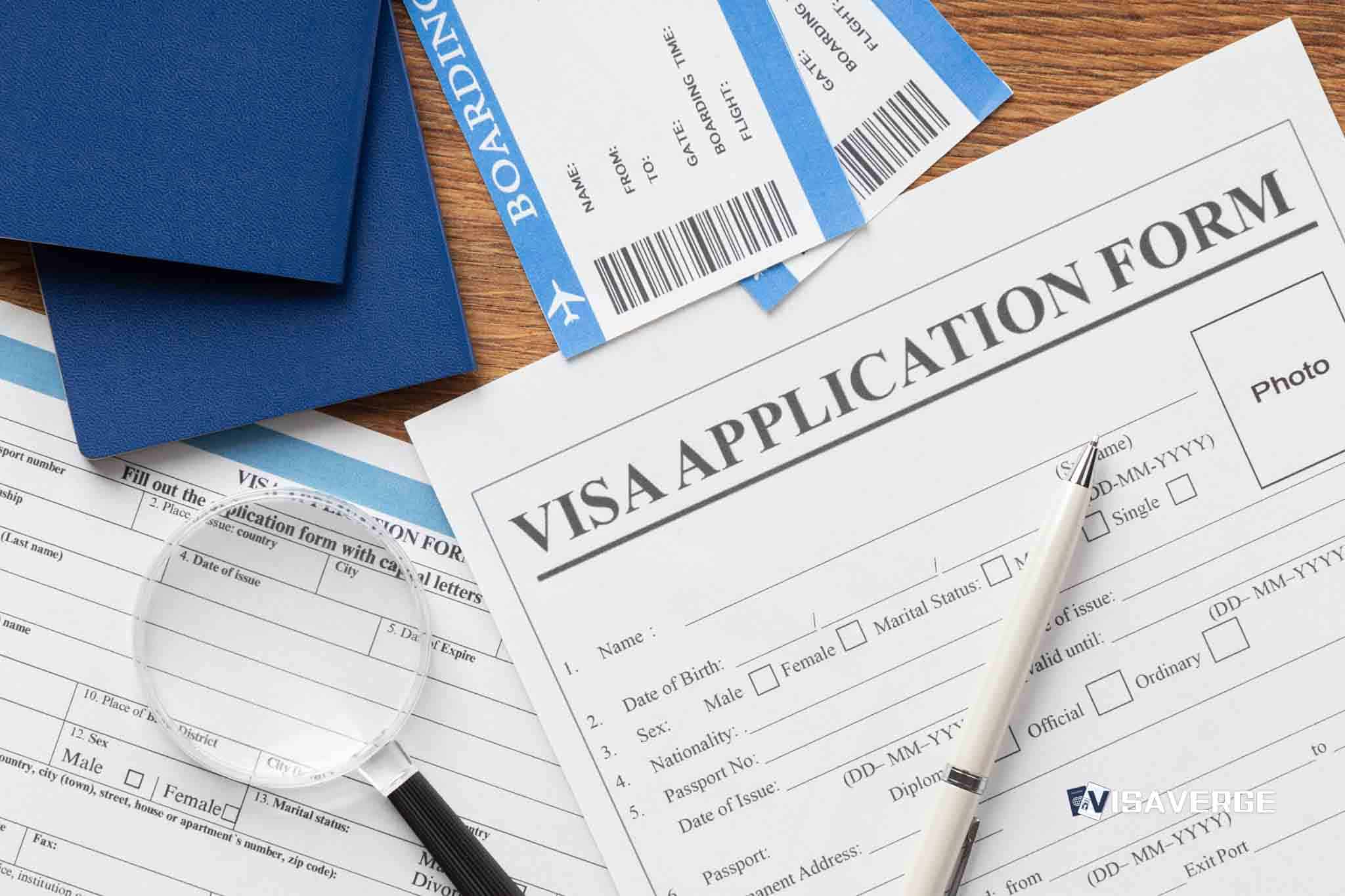Most immigration benefits continue even when Washington closes its doors. That includes R-2 applications—the dependent visas for spouses and unmarried children of R-1 religious workers—handled by U.S. Citizenship and Immigration Services. The key reason is simple and practical: USCIS is a fee-funded agency and generally continues processing applications during a government shutdown, so routine casework such as R-2 filings is not automatically paused. Families in the United States 🇺🇸 who need to file or extend status for R-2 dependents can usually proceed as planned, even if Congress has not passed a funding bill.
How USCIS funding affects R-2 processing
In past shutdowns, immigration attorneys and faith-based organizations have watched for bottlenecks in the system. The pattern has stayed steady: USCIS operations mostly continue during a shutdown because the agency runs on the filing fees paid by applicants rather than annual congressional appropriations.

- Petitions and applications, including nonimmigrant categories like R-2, remain receipted and adjudicated.
- Intake, biometrics scheduling, Requests for Evidence (RFEs), and decisions have continued in previous lapses.
- Analysis by VisaVerge.com notes that this separation from the broader federal funding fight means most families will see USCIS keep doing its core work even as other parts of government slow or stop.
What this means for families (R-1 principals and R-2 dependents)
The practical concerns are often about school enrollment or a spouse’s job search being derailed by paperwork delays. For R-2 family members, the answer is generally reassuring.
- Because USCIS continues to accept filings, families can file or extend R-2 status on time.
- A pastor on R-1 working at a small church can still assemble an R-2 packet for a spouse and child, mail it, receive receipts, attend biometrics if required, and await a decision.
- The USCIS case life cycle — receipt, biometrics, RFEs, adjudication — remains intact during a shutdown, supported by fee revenue.
Exceptions and programs that do pause
There are exceptions tied to programs funded by annual appropriations. These do not generally include R-2 processing but can affect related steps:
- Paused or slowed during a shutdown:
- E-Verify (employer work-authorization checks)
- Certain niche religious worker programs or some J-1 waiver functions
- Other programs funded by annual appropriations
- Not relevant to R-2:
- Department of Labor (DOL) wage and labor certification functions do halt during a shutdown, but R-2 applications do not rely on DOL. USCIS has independent authority over the R-1/R-2 category, so families are not left waiting on a DOL clearance before USCIS can move forward.
Important: Exceptions apply only to programs explicitly funded through annual appropriations. R-2 processing at USCIS is fee-funded and therefore generally unaffected.
Overseas (consular) considerations — Department of State (DOS)
The global side of immigration continues too, but with caveats.
- DOS visa and passport services generally continue during a shutdown because they are largely fee-funded.
- However, local consulates may:
- Reduce appointment availability
- Shift priorities or slow processing because of staffing/ non-fee-supported constraints
- Result: Visa stamping for R-2 dependents abroad may still proceed, but expect uneven conditions across posts and potential scheduling slowdowns rather than a full stop.
USCIS flexibility and past accommodations
USCIS has sometimes shown flexibility when shutdowns create knock-on effects:
- In earlier lapses, the agency accepted late filings or offered limited accommodations when shutdowns caused delays—particularly for cases tied to DOL steps or other agencies.
- For R-2 dependents, that safety net is less central because R-2 filings do not hinge on DOL approvals.
- Nevertheless, history suggests USCIS tries to avoid penalizing applicants for delays outside their control.
Two practical questions families should separate
- Can USCIS take and process an R-2 application during a government shutdown?
- Yes. USCIS continues fee-funded operations and adjudications.
- Can an overseas consulate issue the R-2 visa stamp during the same period?
- Often yes, but with the caveat that local consular conditions may slow or change appointment availability.
This split matters for R-1 workers planning travel: USCIS approval of R-2 status and DOS visa issuance are distinct steps.
Why USCIS keeps working when appropriations lapse
- USCIS is financed through applicant fees for benefits requests (nonimmigrant and immigrant).
- This fee structure allows the agency to continue normal operations—receipting, biometrics, RFEs, adjudications—even during a shutdown.
- Programs that are funded by appropriations (e.g., E-Verify) will pause, but those programs do not impact R-2 filings.
Practical checklist for R-2 families during a shutdown
- File complete applications with clear relationship evidence and current status documents for all dependents.
- Track delivery and keep USCIS receipt numbers handy.
- Monitor case status online and respond quickly to any USCIS notice (deadlines generally remain in force).
- If consular processing is required:
- Check appointment calendars early.
- Allow buffer time for consular scheduling delays.
- Consider alternate posts or watching for cancellations.
- Remember that DOL closures do not affect R-2 processing, and E-Verify pauses do not block USCIS filings.
Practical effects summarized
What tends to hold steady:
– USCIS continues to accept and adjudicate fee-paid R-2 applications.
– Receipt notices, biometrics, RFEs, and decisions proceed in the ordinary course.
– DOL labor certifications and wage determinations pause — but R-2 applications do not require them.
What may be paused or slower:
– E-Verify typically goes offline during a shutdown.
– Some niche immigration programs funded by appropriations may pause.
– DOS consular appointment availability can be reduced in specific locations.
Planning travel, school, and work during a shutdown
- If inside the U.S.: filing with USCIS to extend or change to R-2 is often the smoother route during a shutdown.
- If applying abroad: monitor the consulate’s appointment calendar closely and build in extra time for travel.
- Keep copies of I-94s, prior USCIS notices, and relationship documentation to respond quickly to RFEs.
- Attend biometrics or interviews as scheduled unless USCIS notifies otherwise.
Communication and tracking
- Sign up for electronic updates and track cases online. USCIS tools and case status functions remain available for fee-funded benefits even during a shutdown.
- If you receive a notice with a response deadline during a shutdown, follow the deadline as printed unless USCIS issues a specific extension.
Special concerns: aging-out and teenagers
- Families with teenagers approaching age limits should file early and retain proof of timely filing.
- USCIS continues to receive filings during shutdowns, and accommodations have sometimes been made when shutdowns caused delays in inter-agency steps.
- For R-2 dependents, timely filing with USCIS is the best protection against “aging out.”
Employer and faith-based organization considerations
- Employers and religious organizations benefit from the relative stability of the R-1/R-2 track during shutdowns.
- While E-Verify may be unavailable, that does not prevent USCIS filings for dependents.
- Employers typically follow government guidance on hiring while E-Verify is down and catch up once it resumes.
Final takeaways
- The R-2 category is processed by USCIS on a fee basis, and therefore R-2 dependent family member applications filed with USCIS continue to be processed during a government shutdown.
- DOL’s stoppage does not affect R-2 processing.
- DOS consular services generally continue, so visa issuance abroad remains possible though local delays can occur.
- Keep filings complete, track receipts, and plan travel with flexibility—these steps will help mitigate most shutdown-related disruptions.
If you need an official starting point for general information, the USCIS website remains the authoritative resource throughout a shutdown: U.S. Citizenship and Immigration Services. Even during a funding lapse, USCIS posts operational notices and service alerts as needed, and its online filing tools and case status functions remain available for fee-funded benefits.








